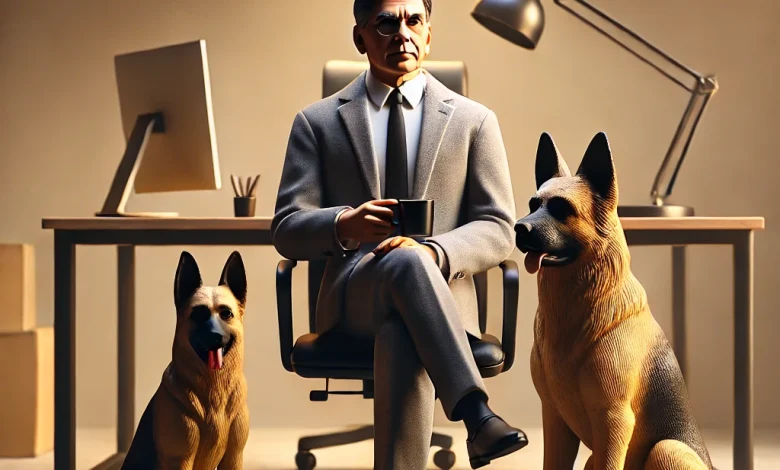Ratan Tata: The Humble Life of a Business Icon
Discover the life of Ratan Tata, a visionary leader who chose simplicity over extravagance.

Ratan Tata: The Man Who Chose a Simple Life
Ratan Tata, one of India’s most revered business leaders, is known not just for his leadership of the Tata Group, but also for his remarkable humility and simplicity. Even in his role as a VIP, Tata has always distanced himself from extravagance, preferring a modest lifestyle.
A VIP Who Travels Alone
In 1992, employees of Indian Airlines were asked to name the most impactful passenger they had encountered. Ratan Tata received the majority of votes. Unlike other VIPs who traveled with an entourage, Tata always traveled alone. He carried his own luggage and quietly worked during flights, sipping his usual black coffee with minimal sugar. Despite not always getting the coffee exactly as he liked, he never complained to the flight attendants.
Simplicity Reflected in His Work Life
Ratan Tata’s simplicity extended to his professional life as well. During his tenure as the Chief of Tata Sons, he did not occupy the lavish office of his predecessor JRD Tata. Instead, he built a small, unassuming room for himself. When senior officers interrupted his meetings with junior staff, he would politely ask them to wait their turn. Tata was often seen walking around the Bombay House headquarters with his two German Shepherds, Tito and Tango, whom he adored.
A Leader Who Puts Loyalty First
In February 2018, Tata was scheduled to receive the prestigious ‘Rockefeller Foundation Lifetime Achievement’ award from Prince Charles at Buckingham Palace. However, just hours before the ceremony, Tata declined to attend because his beloved dog, Tito, had fallen ill. When Prince Charles heard this, he remarked, “That’s the man. That’s Ratan Tata.”
A Commitment to Punctuality and Privacy
Like JRD Tata, Ratan valued punctuality above all else. He left his office promptly at 6:30 PM each day. He disliked people visiting him at home for work-related matters, as he preferred spending time alone with his paperwork. During weekends, Tata retreated to his farmhouse in Alibag, where he spent time with his dogs and avoided socializing. He disliked public speeches and grand events, preferring a quiet, secluded life.
His Humble Roots and Family Influence
Ratan Tata’s simplicity can be traced back to his childhood. He was raised by his grandmother after his parents divorced. He spent several years in the U.S., where he studied architecture and engineering at Cornell University. During his time abroad, he lived a modest life, often borrowing money from friends and even washing dishes to make ends meet.
His grandmother’s influence was so strong that when she asked him to return to India, he left behind a successful career in Los Angeles to fulfill her wish. Despite being one of India’s most eligible bachelors, Tata never married. He once revealed that he fell in love with an American woman during his time in the U.S., but the relationship ended when her parents refused to let her move to India due to the ongoing India-China war in 1962.
Starting His Career at Tata Steel
In 1962, Ratan Tata began his career at Tata Steel, working as an apprentice on the shop floor in Jamshedpur. He donned a blue overalls and learned the ropes like any other worker. His humility and work ethic impressed many. He later took on leadership roles in struggling Tata companies like Nelco and turned them around.
Business Achievements and Global Impact
As the head of Tata Group, Ratan Tata’s leadership brought global recognition to the conglomerate. In 2000, Tata acquired the British tea company Tetley, making Tata Global Beverages the world’s second-largest tea company. The purchase of the European steel company Corus followed, as well as the acquisition of Jaguar and Land Rover in 2008. These strategic moves elevated Tata Group’s global presence, despite facing initial criticism.
Tata also revolutionized the Indian automobile industry with the launch of the Tata Nano, the world’s most affordable car, priced at just one lakh rupees. Though the Nano didn’t achieve the success expected, it demonstrated Tata’s commitment to innovation and serving the masses.
Facing Criticism and Controversies
Despite his success, Tata has faced his share of controversies. His decision to acquire Jaguar and Land Rover was criticized by some as a financial burden on the group. There were also disputes surrounding Tata Group’s handling of its jewelry brand Tanishq and the dismissal of its chairman, Cyrus Mistry.
However, through all of this, Ratan Tata’s reputation as one of India’s most trusted and respected industrialists has remained intact. During the COVID-19 pandemic, he donated ₹1,500 crore through Tata Trusts and Tata companies, showcasing his deep commitment to social causes.
A Lasting Legacy
Ratan Tata’s simple lifestyle, humility, and dedication to his work have left an indelible mark on India and the world. His leadership of Tata Group, charitable initiatives, and unpretentious nature make him an icon not only in business but in life itself.


